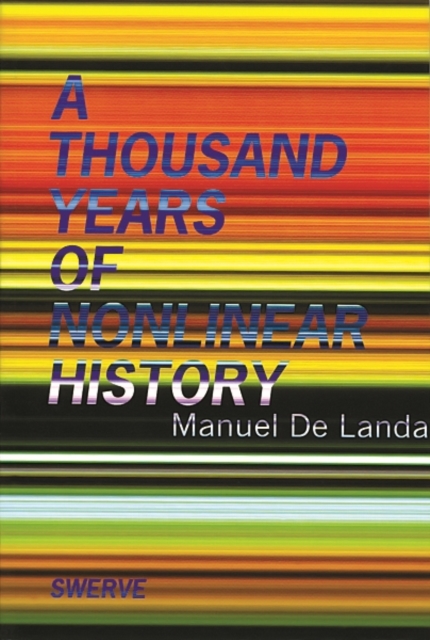
A Thousand Years of Nonlinear History Paperback / softback
by Manuel de Landa
Part of the A Thousand Years of Nonlinear History series
Paperback / softback
Description
More than a simple expository history, A Thousand Years of Nonlinear History sketches the outlines of a renewed materialist philosophy of history in the tradition of Fernand Braudel, Gilles Deleuze, and Felix Guattari, while also engaging the critical new understanding of material processes derived from the sciences of dynamics. Following in the wake of his groundbreaking War in the Age of Intelligent Machines, Manuel De Landa presents a radical synthesis of historical development over the last one thousand years.
More than a simple expository history, A Thousand Years of Nonlinear History sketches the outlines of a renewed materialist philosophy of history in the tradition of Fernand Braudel, Gilles Deleuze, and Felix Guattari, while also engaging the critical new understanding of material processes derived from the sciences of dynamics.
Working against prevailing attitudes that see history as an arena of texts, discourses, ideologies, and metaphors, De Landa traces the concrete movements and interplays of matter and energy through human populations in the last millennium.
De Landa attacks three domains that have given shape to human societies: economics, biology, and linguistics.
In every case, what one sees is the self-directed processes of matter and energy interacting with the whim and will of human history itself to form a panoramic vision of the West free of rigid teleology and naive notions of progress, and even more important, free of any deterministic source of its urban, institutional, and technological forms.
Rather, the source of all concrete forms in the West's history are shown to derive from internal morphogenetic capabilities that lie within the flow of matter-energy itself.
Information
-
Less than 10 available - usually despatched within 24 hours
- Format:Paperback / softback
- Pages:336 pages
- Publisher:Zone Books
- Publication Date:11/01/2000
- Category:
- ISBN:9780942299328
Information
-
Less than 10 available - usually despatched within 24 hours
- Format:Paperback / softback
- Pages:336 pages
- Publisher:Zone Books
- Publication Date:11/01/2000
- Category:
- ISBN:9780942299328






